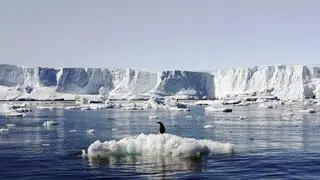As can be imagined, the 24th Conference of Parties at Katowice, Poland, was all full of gravitas, heavy in legalese and climate jargon. However, there was one intriguing activity by an observer group — as part of its advocacy, it was distributing vegan food.
Now, what has veganism, or even vegetarianism, got to do with climate change? Apparently, a lot.
The force behind vegetarianism has moved from religious dictat to compassion to animals to healthy eating and now to, what they call, ‘ethical eating’. There are many who are straining their vocal cords to promote ethical eating, and perhaps the best known among them is Tzu Chi Foundation, a Buddhist outfit based in Taiwan, who were present in Katowice, batting for vegetarianism.
The telling link
The connection between vegetarianism and climate change goes like this: Every year, some 56 billion animals are raised and killed for meat. These animals emit a lot of methane, a greenhouse gas 25 times as bad as carbon dioxide. Their dung produces a lot of the gas too. Nearly a third of the land pressed into agriculture is used for raising crops for feeding these animals — this leads to degradation, loss of biodiversity, cutting down of forests or opportunity lost for growing forests that could soak up carbon dioxide.
Tzu Chi also says that 70 per cent of the crops grown are meant for feeding animals, and that a fifth of all greenhouse gas emissions come from livestock — which is more than transportation.
All this data cannot be dismissed as hyperbolic from an overzealous vegan evangelist, for there are other experts who concur. For example, Benjamin Houlton, Director, John Muir Institute of Environment, California, believes a fourth of climate change is attributable to food. Ben says that a 6-ounce steak is responsible for 330 gram of CO2 — the same as driving a car for three miles; an equivalent veggie dish produces 14 gm of the gas.
The World Resources Institute has said in a December 2018 report, titled ‘Creating a Sustainable Food Future’, that the demand for ruminant (cattle, sheep and goats) meat would increase by 88 per cent between now and 2050 — when the world’s population would grow by 2 billion to 9.8 billion — and that for keeping greenhouse gas emissions under check, meat eaters would have to drastically reduce their consumption.
But ethical eating is not all about going vegan. Tzu Chi stressed at the press conference that many other things that leave a carbon footprint, matter. For example, South India consumes a lot of apples imported from Australia. Shipping the fruit all the way across the hemispheres causes a big puff of CO2. Hence the advocacy for ‘eating local’. Tzu Chi says that food on the plate travels, on an average, 1,500 miles; on the other hand, local food is fresher, and often tastier.
And there is the issue of packing. Wrap food in aluminium foils or plastic, you are adding to the problem; instead go for leafy packing materials.
Ethical Eating Day
Tzu Chi has named January 11 to be an ‘ethical eating day’ and is calling for pledges for eating ethically (at least) on that day; 1.3 million people have taken the pledge so far. Not enough!








Comments
Comments have to be in English, and in full sentences. They cannot be abusive or personal. Please abide by our community guidelines for posting your comments.
We have migrated to a new commenting platform. If you are already a registered user of TheHindu Businessline and logged in, you may continue to engage with our articles. If you do not have an account please register and login to post comments. Users can access their older comments by logging into their accounts on Vuukle.